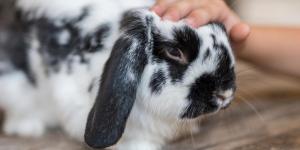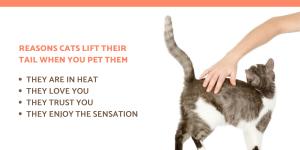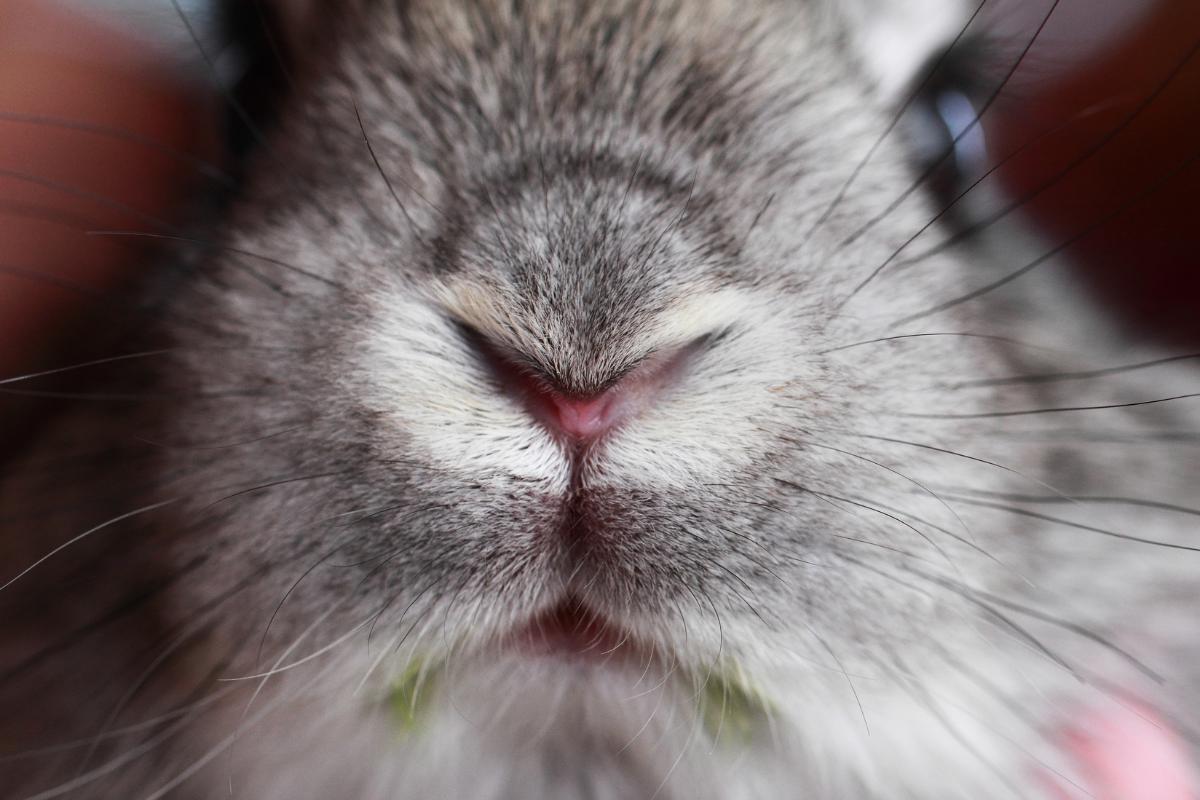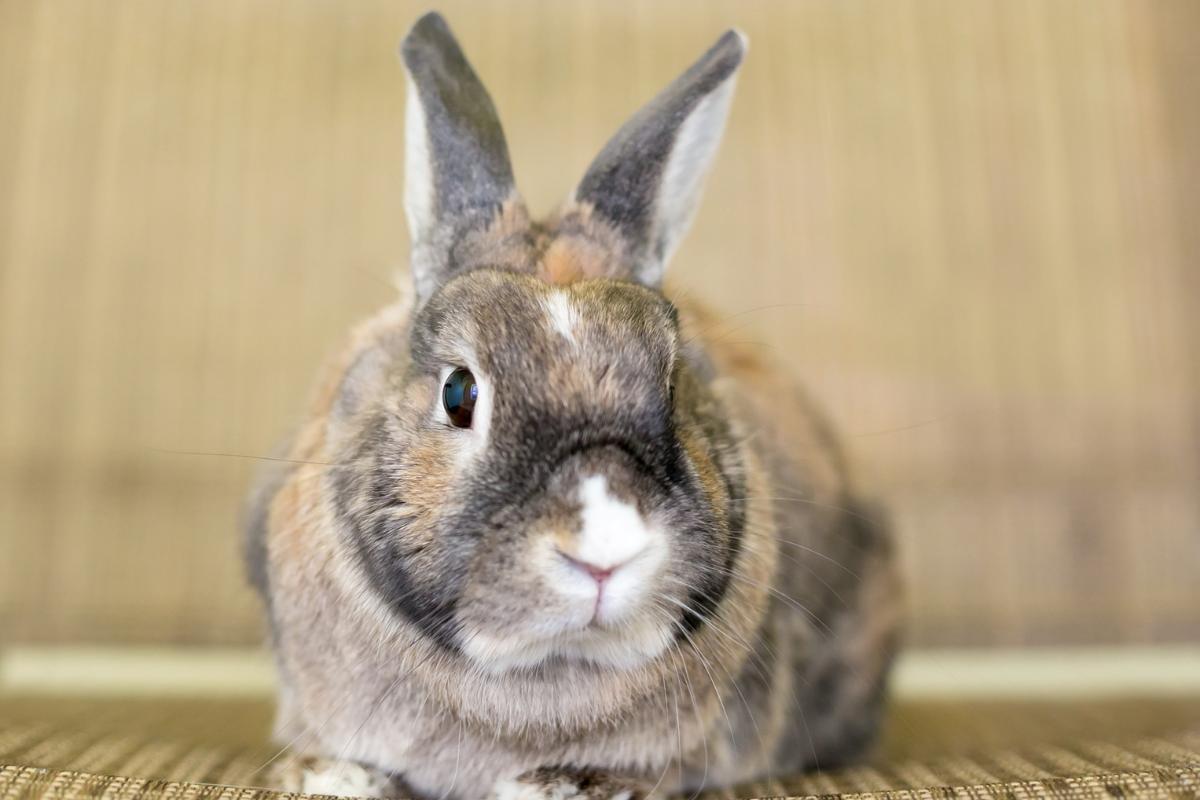Why Do Rabbits Twitch Their Noses?

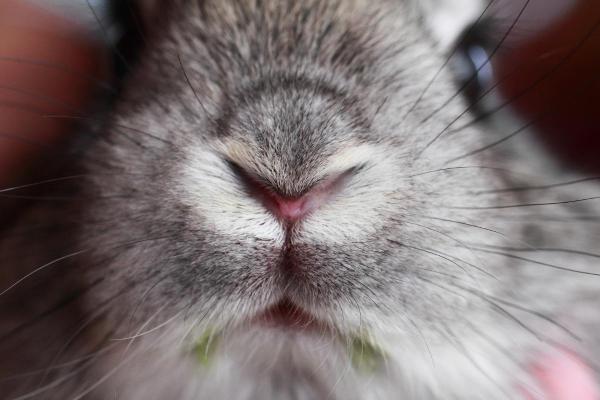

See files for Rabbits
Rabbits, with their soft fur, expressive ears, and playful hops, are undeniably charming creatures. But beneath their adorable exterior lies a complex world of behavior, driven by instinct and sensory perception. Their noses aren't just cute accessories, they are powerful organs, packed with olfactory receptors that allow them to navigate their environment through scent. The seemingly random twitches, in fact, are purposeful movements that play a crucial role in a rabbit's life.
In this AnimalWised article, we will explore the reasons behind why rabbits twitch their noses, examining five specific explanations and providing insights on how to interpret these behaviors.
How does a bunny's nose work?
A rabbit's nose is a highly sophisticated organ that plays a crucial role in its survival and overall well-being.
Rabbits have an extraordinary sense of smell, and their noses are equipped with numerous olfactory receptors. These receptors are specialized cells that can detect and identify different scents in the environment.
The abundance of olfactory receptors allows rabbits to have a highly sensitive sense of smell, which is vital for various aspects of their lives, including finding food, detecting predators, and communicating with other rabbits.
On the other hand, the structure of a bunny's nose is designed to optimize its sense of smell. The nasal passages are lined with a mucous membrane that helps trap and filter out particles from the air, allowing the rabbit to detect even faint odors.
Around a bunny's nose, there are specialized whiskers called vibrissae. These whiskers are highly sensitive to touch and air currents. The subtle movements of these vibrissae are part of the rabbit's overall nose-twitching behavior.
In fact, the constant twitching of a rabbit's nose, often seen as a cute quirk, actually reveals some interesting aspects of their biology. This seemingly simple movement serves several crucial functions, playing a vital role in their survival. In the following sections, we'll explore the five most common reasons behind their constant nose movement.
1. Understanding their environment
As mentioned before, rabbits possess an exceptional sense of smell, far exceeding that of humans.
Their noses, with millions of olfactory receptors, act as highly sensitive instruments, constantly drawing air and analyzing the chemical landscape around them. Those seemingly random nose twitches are not mere fidgets; they are deliberate movements that enhance scent detection by drawing air across the receptors for better analysis.
This powerful olfactory ability plays a crucial role in various aspects of a rabbit's life. Rabbits rely heavily on scent to navigate their environment. They can sniff out food sources, locate their burrows, and even recognize familiar individuals by their unique scent signatures. This intricate olfactory map becomes their internal GPS, guiding them through their territory with remarkable accuracy.
2. Regulation of breathing and temperature
While rabbit nose twitches are often associated with their exceptional sense of smell, these constant movements serve another vital purpose – regulating their breathing. Unlike humans, rabbits are obligate nasal breathers, meaning they rely solely on their noses for oxygen intake. This dependence makes the subtle twitching motion crucial for maintaining proper airflow and ensuring a continuous supply of fresh air.
This constant movement creates a rhythmic cycle, optimizing airflow through the delicate respiratory system and maximizing oxygen absorption. The twitches also help clear the nasal passages of dust and debris, further contributing to healthy breathing.
Beyond scent and breathing, the nose twitches also play a role in regulating body temperature. Rabbits lack sweat glands, making their noses a key avenue for heat dissipation. Increased twitching during warm weather helps circulate air and release excess heat, keeping the rabbit cool and comfortable.
Observing the breathing-related twitches can offer valuable clues about a rabbit's health. Difficulty breathing or labored nose movements might indicate respiratory issues, prompting a visit to the veterinarian.
Worried about potential health issues beyond twitching noses? Explore common rabbit illnesses and symptoms in our in-depth guide.
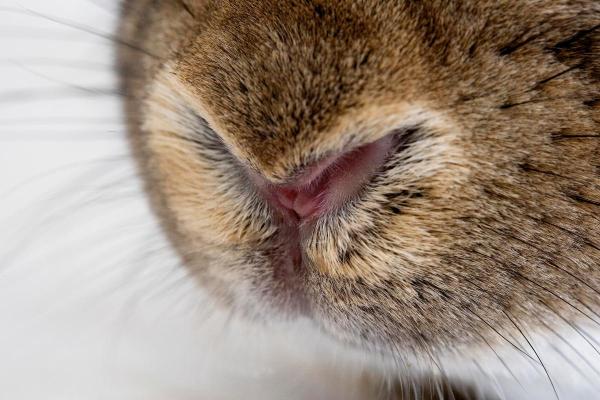
3. Alertness
Rabbits may appear peaceful grazers, but their past as prey animals equips them with exceptional vigilance. Their constant awareness relies heavily on their remarkable noses, and the twitching motions can reveal an underlying state of heightened attention.
When a rabbit enters a state of vigilance, its nose twitches become rapid and precise. This isn't a random flurry; it's a deliberate strategy to maximize scent detection and scan the environment for potential threats. The rapid movements draw in more air, allowing the sensitive olfactory receptors to analyze subtle changes, like the faintest whiff of a predator's musk.
This heightened olfactory awareness acts as an early warning system. A sudden shift in nose twitching from relaxed to rapid might signify the detection of a potential danger. This allows the rabbit to react quickly, whether it's a startled dash for cover, an alert vocalization, or a change in movement patterns.
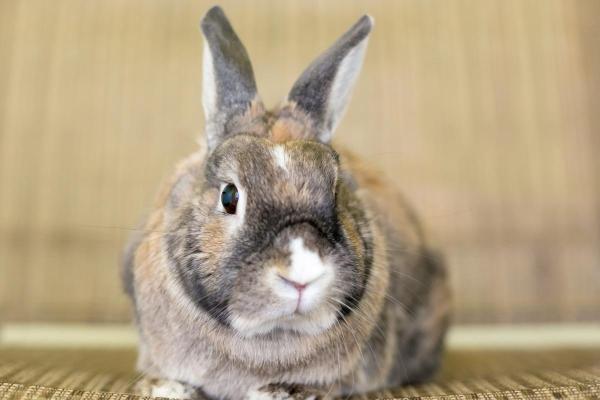
4. Expressing contentment or relaxation
While rapid nose twitches often indicate excitement or curiosity, slower, rhythmic quivers can signify a rabbit feeling relaxed and content. This behavior is often observed during rest periods, when basking in sunshine, or during enjoyable interactions like grooming or gentle petting.
The science behind this contented twitch is linked to the limbic system, the brain's emotional center. When a rabbit feels safe and secure, certain chemicals are released, promoting a state of relaxation. This affects the olfactory system, leading to the characteristic slow nose movements. It's like a physiological indicator of inner peace.
Recognizing this behavior allows us to understand our rabbit companions better. It goes beyond basic needs like food and shelter, signifying that they're genuinely comfortable and enjoying our presence. This awareness can guide our interactions, ensuring we provide a calm and enriching environment for their well-being.
Keep those noses twitching and eyes bright! Learn how to spot early signs of rabbit eye problems.
5. Communication
Beyond the chirps and body language, rabbits communicate through subtle variations in their nose movements. This silent language of sniffs and twitches plays a pivotal role in the intricate tapestry of rabbit social interactions. It serves as a means of establishing hierarchies within a group, where individuals may communicate dominance or submission through their nasal expressions.
Additionally, during the dance of mate selection, rabbits employ their sensitive noses to exchange crucial information about reproductive readiness and compatibility.
Moreover, this olfactory communication is not limited to social dynamics; it also serves as a vital tool for survival. Rabbits use their keen sense of smell to convey warnings of potential dangers to their companions. A sudden freeze in nose movement or a series of rapid twitches can communicate imminent threats, allowing the group to respond collectively to ensure their safety.
You might be interested in this other article that explains how understanding your rabbit's memory can enhance your relationship and improve their well-being.
If you want to read similar articles to Why Do Rabbits Twitch Their Noses?, we recommend you visit our Facts about the animal kingdom category.


